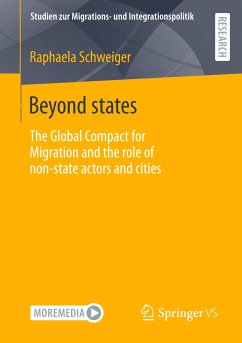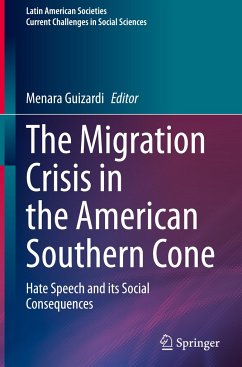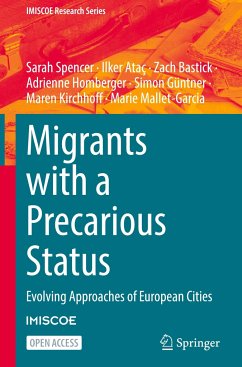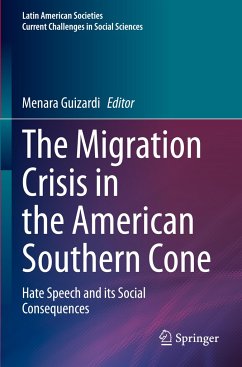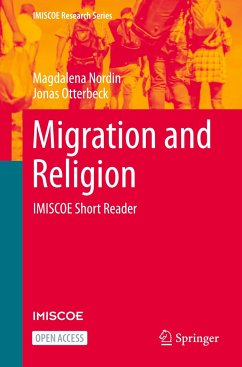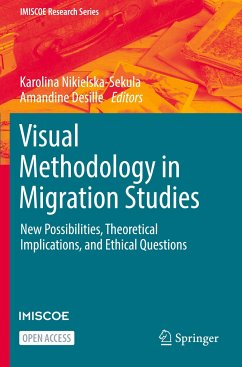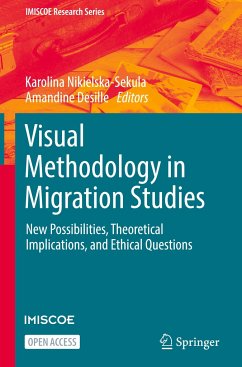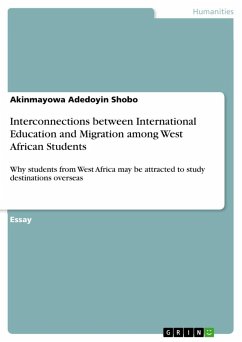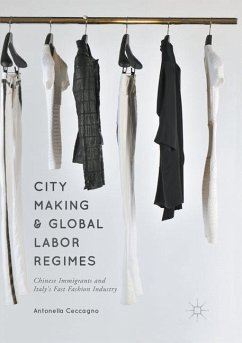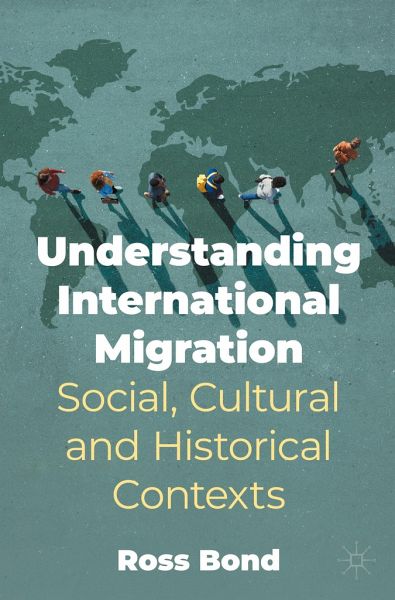
Understanding International Migration
Social, Cultural and Historical Contexts

PAYBACK Punkte
21 °P sammeln!
Uniquely informed by a sociological perspective, this major new textbook introduces the underlying origins and consequences of international migration, placing individuals within a broader social, cultural and historical context.This comprehensive introduction analyses international migration and its effects on those who migrate, their families, and their places of origin and destination. Drawing on illustrative examples from around the world, the book covers the major theories concerning the origins of international migration and the manner, degree and consequences of migrants' incorporation ...
Uniquely informed by a sociological perspective, this major new textbook introduces the underlying origins and consequences of international migration, placing individuals within a broader social, cultural and historical context.
This comprehensive introduction analyses international migration and its effects on those who migrate, their families, and their places of origin and destination. Drawing on illustrative examples from around the world, the book covers the major theories concerning the origins of international migration and the manner, degree and consequences of migrants' incorporation into the societies to which they move. It also includes in-depth discussion of how international migration is relevant to key issues - gender, the family, and religion; the so-called refugee 'crisis' in much of the developed world; and offers insights throughout into cutting-edge research from emotions and lifestyle migration to the proliferation of digital communicationtechnologies.
This text expertly offers students the necessary skills to unpack common myths that are used to inform policy and media discourse, including abstract distinctions between 'refugee' and 'economic migrant', the complex and ambiguous nature of migrant national identity, and that while many richer countries of the world are characterized by a perceived refugee 'crisis', it is in fact poorer and developing countries that see the vast majority of the world's refugees and displaced persons.
This comprehensive introduction analyses international migration and its effects on those who migrate, their families, and their places of origin and destination. Drawing on illustrative examples from around the world, the book covers the major theories concerning the origins of international migration and the manner, degree and consequences of migrants' incorporation into the societies to which they move. It also includes in-depth discussion of how international migration is relevant to key issues - gender, the family, and religion; the so-called refugee 'crisis' in much of the developed world; and offers insights throughout into cutting-edge research from emotions and lifestyle migration to the proliferation of digital communicationtechnologies.
This text expertly offers students the necessary skills to unpack common myths that are used to inform policy and media discourse, including abstract distinctions between 'refugee' and 'economic migrant', the complex and ambiguous nature of migrant national identity, and that while many richer countries of the world are characterized by a perceived refugee 'crisis', it is in fact poorer and developing countries that see the vast majority of the world's refugees and displaced persons.





